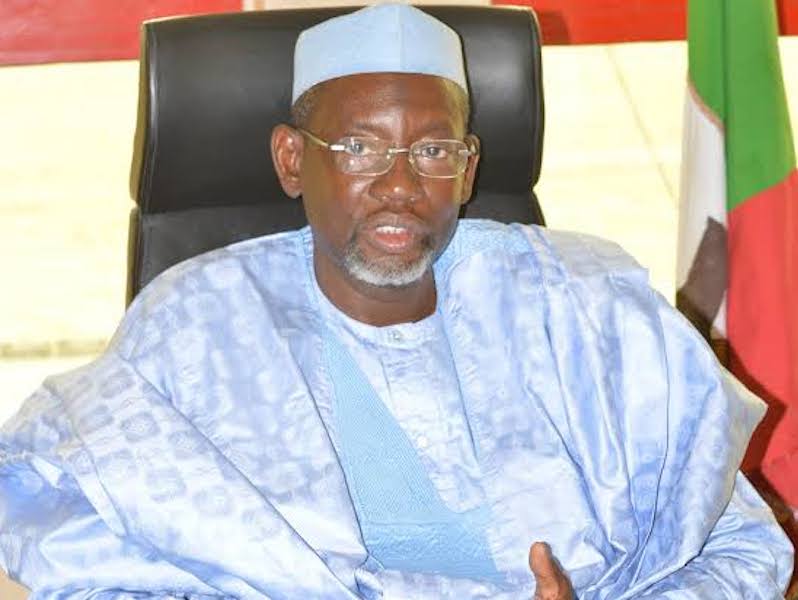Vice President Yemi Osinbjo says quality, affordable and reliable healthcare is central to the development of the country.
Osinbajo expressed this view while virtually inaugurating the Health Reform Committee on Thursday, in Abuja.
According to him, any society is only as prosperous, developed and happy as its healthcare system.
“There must be a plan to improve access to quality, reliable, functional and affordable healthcare for citizens.
“President Muhammadu Buhari, has in several public statements, made it clear that a modern virile and people-centric healthcare system was fundamental to his vision for the socio-economic growth of our nation.
“However, the current reality is that the Nigerian health sector, and we have heard quite a bit of that from the Minister of Health, Dr Osagie Ehanire, still carries some critical challenges.
“Which have resulted in sub-optimal outcomes, when compared especially with healthcare systems in more developed jurisdictions of the world.
“This is due to a variety of factors, including fragmentation of health service delivery; insufficient healthcare financing; inadequate motivation and poor distribution of health workers; inadequate infrastructure and equipment; and relatively low private sector participation.
“These factors have precipitated significant revenue loss due to growing medical tourism, and even the loss of our trained personnel which is a frightening phenomenon even now.”
He said that government had the primary responsibility to address the issues and to put in place the structures and arrangements necessary to boost the efficiency of the healthcare ecosystem.
The vice president said it was the responsibility of government to improve healthcare delivery, stem the brain-drain of health personnel and reduce the pressure on foreign reserves on account of medical tourism.
He said that in furtherance of that objective, the president approved the establishment of this Health Reform Committee to commence the development and implementation of a wide-ranging Health Sector Reform Programme for the country.
“We already have the terms of reference.
“There have, of course, been a good number of attempts to reform the healthcare system in Nigeria, and many of us who are members-designate of this committee are familiar with some of these reform efforts.
“This particular journey of reforming the Nigerian health sector, and we have heard quite comprehensively from the Minister of Health, began with the commissioning of a Diagnostic Needs Assessment (DNA) of the sector,” he said.
According to him, Subsequently, the National Council on Privatisation at its meeting of April 12, 2019, approved the appointment of consultants to carry out the assignment.
“Which involved a review of previous reform efforts in the sector, as well as field visits to 55 Tertiary Health Institutions across the country and some selected sub-regional health institutions.
“It is also important to mention that a series of stakeholder consultations were carried out with relevant Ministries, Departments and Agencies (MDAs), health unions and key stakeholders in the sector.” he said.
Osinbajo said that as mandated by the president, the Health Sector Reform Committee was tasked with the crucial role of reviewing these reports and steering the direction of the needed reforms.
He said the multi-sectoral and multi-disciplinary participation required to execute a health reform mandate on the scale and the complexity was key.
He said that he was keen to ensure that the coordinating office for the reform effort which is domiciled in the Office of the Vice President would not just have the Ministry of Health but other offices.
While acknowledging that the importance of office of the vice president as a critical partner, he also recognized some of the important technical resource persons provided by the partners and solid representation from the committee.
According to him, the coordinating office will provide technical and administrative oversight of all activities of the reform and I intend to have further consultations with the Minister of Health as we bring this to fruition.
“The next steps are that the committee will be divided into thematic working groups to take on various aspects of the assignment.
“We have received the commitment of funding support to engage experts who will be assigned by the secretariat to the various teams.
“In addition to members, we would also have sector experts for the thematic groups, professionals who would be engaged to support the thematic groups themselves.
“I hope that at the next meeting of the committee which will be convened shortly, the proposals for the thematic groupings and terms of reference will be presented for consideration.” he said.(NAN



